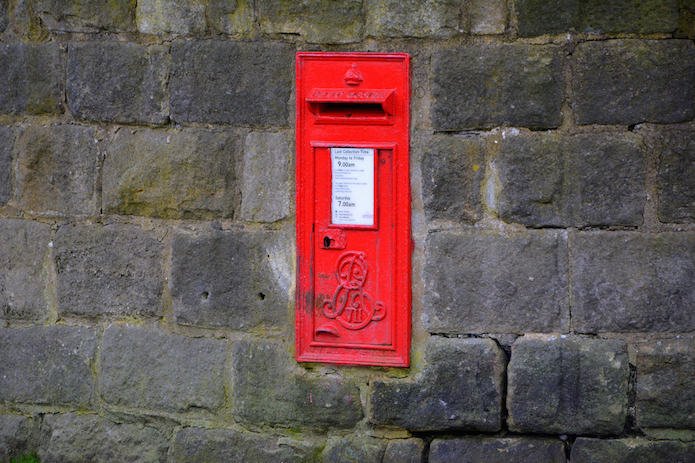
ODI CEO Jeni Tennison calls on political parties to publish data on candidates and be open about how they will use personal data in their election campaigns

This letter has been sent to parties with significant numbers of MPs or share of current opinion polls: the Conservative party, the Greens, the Labour party, the Liberal Democrats, the Scottish National Party and the UK Independence Party
Part of our network in Wales has translated this letter into Welsh and sent to Plaid Cymru, Welsh Labour, Welsh Conservatives, Welsh Liberal Democrats and Welsh UKIP.
Dear [...]
The UK will have a general election on 8 June 2017. You and other political parties are putting forward candidates, creating a manifesto that says what you will do if you form part of the government after the election and campaigning for the votes of the electorate. If you form part of the next government, you will want to deliver your manifesto and policy ideas.
Like every other organisation you will find that in the 21st century data and technology are essential tools to help with all of these things.
Voters need to know what your policies are, who your candidates are and what those candidates think. To get this information to people you will need to collect, use and publish data online, and you will want people to trust that you are doing this in a way which is ethical. Meanwhile, if you get into power you will find that data and technology create new ways to deliver your policies in ways that meet the changed expectations of citizens.
Unfortunately, recent political campaigns have had common themes:
- concerns over the use of personal data and targeted advertising
- electoral processes that have not been adapted to the 21st century
- a lack of debate over the changes to our society that are being brought about by the internet and world wide web
We are asking you today to make two simple enhancements to your practices in the run-up to the general election:
- Publish information about candidates as open data
- Openly state how you use and reuse personal data in the cause of your campaign
We, and many other people, can help you do this through providing advice, tools and guides. There is more detail about why we are asking this below but please let us know if you would like our support at any stage.
Our goal with this request, as with other things that we do, is to encourage the best use of data, to build people’s trust in how organisations use data and to help people make informed decisions. In this case, the decision people are making is who should represent them in our democratic system.
We are here to help and to work with you. Please email [email protected] if you need support or would like to discuss this further.
Yours sincerely,
Jeni Tennison CEO Open Data Institute
A bit about us and why we are asking you to do this
The Open Data Institute works to build a strong, fair and sustainable data economy in which data gets to the people who need it. We believe that openness is a vital mechanism to create a data economy that works for everyone. The Open Data Institute is a global organisation but our headquarters are in the UK and the UK’s practices, particularly around data and democracy, are followed worldwide.
We are calling on all political parties standing in the UK General Election to learn the lessons of recent votes in the UK and abroad, and to demonstrate better practices around data.
The UK is currently a world-leader in data and data science. We are leading the way in the use of data in banking, transport, sports, mapping, law and many other sectors. It is time for us to lead the way in the democratic process.
Publish data about your candidates
It is not easy to find out which candidates are standing in which constituencies. Notices of candidates are buried away in obscure pages on hundreds of council websites. For the last few elections Democracy Club and a team of volunteers have gathered information from these websites and turned it into open, machine-readable data that is used by journalists, web search engines and individual citizens to help them know who they can vote for. This effort should not be normal. It is wrong to rely on a group of volunteers to drive the publication of data that helps people know who they can vote for and where they can vote for them.
The Electoral Commission could work with local authorities to publish some candidate data: the names and parties of each candidate in each area. You should support them to do this if you form part of the next government. But there is richer data that parties could publish as data too: photos of candidates, email addresses, links to websites and candidate statements. (There is a wider set of data that should be published about elections, we know you cannot address all of these during a campaign.) Both we at ODI and Democracy Club have simple tools, guides and support to help you publish this kind of data.
Be open about how you are using personal data
After recent votes in multiple countries there have been stories about how political parties and candidates are using personal data. These stories have included allegations of breaches of data protection and of advertisements that are micro-targeted based on people’s personal data. We do not know if the allegations are true or the extent of the use of micro-targeted advertisements but it is clear that the allegations risk reducing people’s trust in data, democracy and political parties. This can have a knock-on effect of reducing trust in the use of data in public services or by the broader digital economy.
Openness about how organisations are using personal data is not a magic bullet but it allows for more informed debate and can improve trust. We set high standards for our politicians when they are in office; we should expect them to demonstrate that they can meet those standards when they are running for office. You should be open about how you are using personal data during the campaign. This may include publishing open data about how you are targeting adverts on social media, but even clear statements about what you do and don’t do with personal data would help. We have developed some principles that will help you describe how you are using data. You should do this during the campaign.
Learning how to do this will help you learn how to use data to help deliver your policies.
It will help bring data, the internet and the world wide web into the debate.
We hope that your manifestos will be full of great ideas for the future of the UK. We hope you understand that data will be essential to deliver them. The best way to learn how to use data well is to do it. By publishing data about your candidates and by being open about how you are using personal data you will start learning how to use data well.
If your candidates are successful then we encourage you to make data a priority area for investment to ensure that the UK is positioned to both benefit from the opportunities and tackle the challenges that an abundance of data will pose. We have already published some ideas that may be useful.